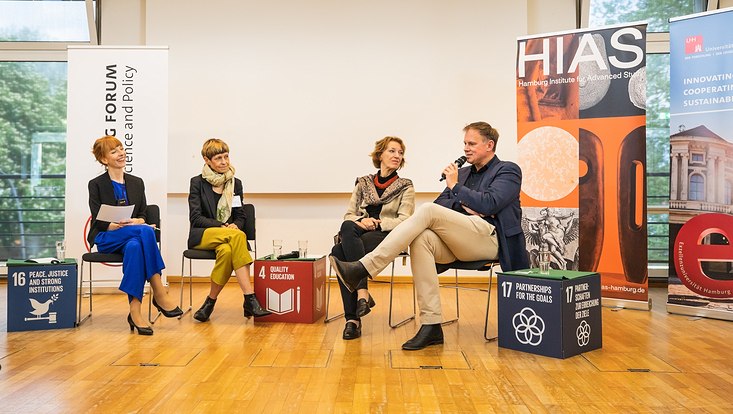Konferenz: „Why Research in Internationalization Matters“

As a part of The Hamburg Forum for Global Science and Policy, Universität Hamburg and the Hamburg Institute for Advanced Study (HIAS) invited to the conference "Why Research in Internationalization Matters" on 16 and 17 May 2023 in Hamburg.
Volatile geopolitical dynamics, combined with the global COVID-19 pandemic, have forced and are forcing universities and research institutions as well as policymakers to re-adjust much of what was previously thought of as ‘standard’ in research. The new normal is that there is no normal: The post-pandemic landscape of higher education and its governance, and, thusly, research, looks very different than it did in 2019. Research on these new challenges facing the internationalization of research is as of yet not sufficiently explored. "Why Research in Internationalization Matters" is initiating a new discourse with international and internationally oriented researchers, research managers and university leaders to examine these questions.
Evening Kick-off: 16 May, 6–8 pm (CEST) (hybrid)
Podium discussion “Resilient Research in a Complex World Order” with Prof. Maria Leptin, President of the European Research Council, Prof. Angela Ittel, President of the Technische Universität Braunschweig, and Prof. Hauke Heekeren, President of Universität Hamburg
Guiding questions:
- In a multipolar world, what principles should guide international scientific cooperation in the future?
- How are recent events re-shaping the research funding landscape?
- How are these changes affecting researcher mobility and institutional strategy?
Day 2: 17 May, 9 am–3 pm (CEST) (on-site)
Keynotes by Prof. Rudolf Stichweh, Forum Internationale Wissenschaft, Universität Bonn, and Prof. Thomas Rigotti, Leibniz-Institut für Resilienzforschung, Mainz, followed by workshops from the perspective of individual-based research; small research groups; and large-scale research groups
Guiding questions:
- What are success factors and pitfalls for successful international collaboration?
- How much governance is needed? And from what level?
- What support structures including financial are necessary?
- Matching so-called research excellence and research potential: how can we create equal footing in international collaboration between the Global North and South?

